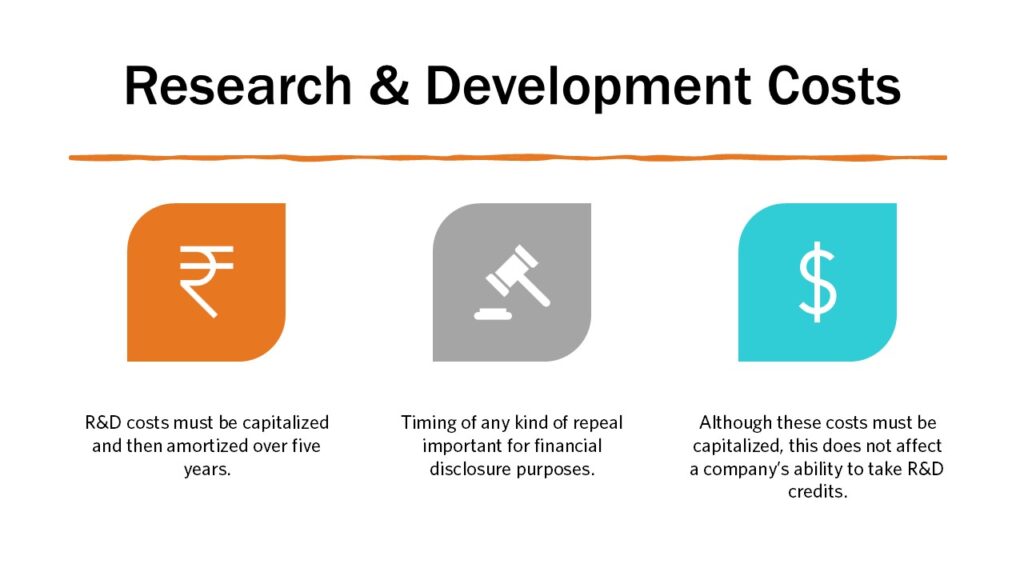Top Takeaways From Our 2024 Business Tax Planning Webinar
In this article:
- Federal Tax Updates and Credits
- Expiring Provisions in the Tax Cuts and Jobs Act
- State Tax Challenges and Compliance
- International Tax Strategy
- Year-End Tax Compliance Readiness
- Strategic Tax Planning to Boost Business Value
- How We Help
Tax planning is an essential part of business strategy, especially as we approach year-end. During AAFCPAs’ recent Business Tax Planning webinar (October 2024), speakers discussed topics that affect U.S. privately held businesses across federal, state, and international tax landscapes. This session highlighted credits, deductions, compliance challenges, and strategies that could benefit businesses now and into 2025.
Here are the main takeaways. You may also download the slides and watch the entire session as a webcast at your convenience.
Federal Tax Updates and Credits
Several recent developments at the federal level may create tax-saving opportunities or compliance challenges for businesses. Among these changes:
- Research and Development (R&D) Costs. Since 2022, R&D expenses must be capitalized across five years (domestic) or 15 years (international). While Congress has previously considered restoration of the old rules granting companies the option of deducting or capitalizing, the change was enacted. It is anticipated that they will review this issue once again in connection with any 2025 tax package.
- Retirement Plan Startup Tax Credit. Available for smaller employers with fewer than 100 employees, this three-part credit includes a $5,000 credit for startup costs, a $1,000 per employee credit for employer contributions, and a $500 credit for implementing automatic enrollment. AAFCPAs advises clients to consider these advantages when implementing such plans.

Expiring Provisions in the Tax Cuts and Jobs Act
Several elements of the 2017 Tax Cuts and Jobs Act (TCJA) are set to expire after 2025. Key provisions include:
- State and Local Tax (SALT) Deduction. The current $10,000 cap on SALT deductions may end at the end of 2025. Any new tax package extending the current tax rates will include discussions and potential changes to the cap, including increasing or eliminating it entirely. Flow-through businesses utilizing the pass-through entity tax as a workaround should assess this potential impact.
- Qualified Business Income (QBI) Deduction. Pass-through entities currently benefit from a 20 percent deduction on QBI at the individual level. Businesses should determine how expiring QBI provisions could affect their owners’ future tax liabilities.
- Employer Credit for Paid Family and Medical Leave. This provision allows employers to claim a credit for wages paid to employees on family and medical leave, up to 12.5 percent of wages if they meet eligibility requirements. Businesses should review their leave policies to determine if they qualify and plan for potential changes if the credit expires.
The Inflation Reduction Act also expands tax credits related to renewable energy, providing benefits for green initiatives. For example, businesses involved in energy-efficient home construction, advanced energy manufacturing, or green commercial buildings may qualify for significant deductions and credits.
State Tax Challenges and Compliance
State tax obligations are becoming increasingly complex, particularly for companies with operations across multiple states. Some issues of note include:
- E-commerce and Public Law 86-272. States continue to revisit what constitutes conducting business under Public Law 86-272, especially as e-commerce grows. States are also reassessing how digital products and services are taxed.
- Net Operating Loss (NOL) Limitations. Many states are imposing limits on NOLs, affecting the amount of taxable income businesses can offset year-over-year. Knowing each state’s specific rules is key.
- Retail Delivery Fees. States such as Colorado and Minnesota have recently implemented retail delivery fees, which apply to each delivery of taxable goods within their borders. While not technically a sales tax, these fees often operate similarly, adding an additional cost per transaction that businesses must manage and report. Companies should review their delivery practices to determine where these fees apply and ensure compliance with reporting requirements.
- Sales and Use Tax Audits. Sales tax audits are growing more frequent, particularly with the rise of remote work and multi-state employees. States are expanding their sales tax bases, targeting previously exempt services, digital products, and cross-border operations. Keeping records, such as exemption and resale certificates, is essential to avoid penalties.
- Massachusetts Single Sales Factor. Starting in 2025, Massachusetts will apply a single sales factor apportionment for corporate and partnership tax reporting, affecting both in-state and out-of-state businesses. This change could result in a higher taxable percentage for Massachusetts-based sales, and out-of-state companies may lose the benefit of diluting their sales factor if they lack property or payroll in the state.
- Multi-State Compliance. Businesses should be mindful of growing scrutiny in cross-border transactions and an increasing number of localities instituting their own local taxes, which can be imposed in addition to any state-level tax. One example is Chicago’s nine percent tax imposed on software as a service (SaaS). Companies need to track their multi-state obligations closely, as each state’s tax environment is unique.
International Tax Strategy
For companies with foreign interests, careful international tax planning is critical. Important points to note on reducing global tax exposure and ensuring compliance include:
- Controlled Foreign Corporations (CFCs). As CFC rules remain stringent, companies are exploring simpler structures, such as foreign branches, which allow for pass-through taxation on U.S. returns. Businesses may consider using disregarded entities to reduce U.S. reporting complexities in a manner similar to operating as a foreign branch while retaining separate legal and tax status in the country in which they operate.
- Double Taxation Risk. Companies that do business across borders face the risk of being taxed by both the U.S. and foreign jurisdictions. To mitigate this, businesses can claim foreign tax credits to offset U.S. tax liability or apply for certificates of residency to leverage tax treaty benefits, potentially lowering or eliminating foreign tax withholding rates. Evaluating these options can significantly reduce a company’s overall tax burden.
- Transfer Pricing. Accurate transfer pricing helps avoid double taxation and potential audits. Businesses with global operations should review their transfer pricing arrangements annually to align with current business operations, particularly given potential audit risks.
- New FinCEN Reporting. The Corporate Transparency Act requires that certain companies file beneficial ownership information with the Financial Crimes Enforcement Network (FinCEN) by year-end to disclose controlling owners. Reporting applies to small businesses and LLCs and carries steep penalties for non-compliance.
Year-End Tax Compliance Readiness
As tax season approaches, clean and organized financial records are crucial for effective tax planning. Reviewing your current accounting infrastructure is a good starting point, ensuring the team, processes, and systems are efficient and meet year-end demands. Adjustments in roles or additional help may benefit the finance team, especially if turnover is an issue. Meeting proactively with your tax team can help clarify any questions and identify red flags before filing deadlines, allowing time to discuss significant business events, such as mergers or new foreign investments, and their potential impact on reporting.
Preparing a year-end checklist can further support an accurate close, covering items like accruals, reconciliations, inventory, and intercompany transactions. Attention to timing cutoffs, especially for significant accruals or large vendor expenses, can prevent delays and last-minute adjustments. Maintaining documentation for all sales and expense records, particularly for multi-state compliance and use tax obligations, helps with reporting accuracy and audit readiness. Inventory valuation and the tax treatment of large fixed-asset purchases also deserve careful review to avoid discrepancies during filing. Companies with remote employees across state lines should ensure all payroll withholding and tax obligations are up to date, as tax agencies often share information across jurisdictions. These practices ensure a comprehensive, organized approach to the year-end close, helping to position your business for tax season and future planning.
Strategic Tax Planning to Boost Business Value
For business owners seeking outside investments or considering an outright sale, effective tax planning and compliance can streamline the transaction process and safeguard business value. Due diligence planning often begins with state tax compliance, as buyers are increasingly focused on potential liabilities related to income, sales, property, and unclaimed property taxes. Maintaining thorough state tax compliance can improve transaction appeal and help avoid unexpected liabilities after the sale.
Additionally, certain tax liabilities may still transfer to the buyer under successor liability laws, even in asset sales. Managing these obligations proactively can reduce complications and mitigate risks tied to these liabilities. For businesses with unresolved state tax issues, voluntary disclosures and state amnesty programs offer an opportunity to address outstanding obligations before engaging in a transaction, enhancing transparency and potentially improving transaction outcomes.
This strategic approach to tax compliance can support a smoother, more efficient transaction process by demonstrating a proactive stance on due diligence, increasing the business’s appeal to potential buyers or investors.
How we help.
Year-end tax planning provides an opportunity to assess financial standing and prepare for potential changes in the tax code. AAFCPAs can help you understand how key federal, state, and international changes will affect your tax position and can develop a tailored strategy to optimize benefits and manage risks.
Our team of tax and accounting specialists provide support across tax planning, compliance, and advisory services, helping clients optimize their tax strategy while managing regulatory obligations. Whether addressing federal and state tax matters or navigating complex international tax requirements, our advisors can work closely with your finance team to ensure your business is prepared for the coming year.
If you have questions, please contact Bella Amigud, CPA, MST, Tax Partner at 774.512.4060 or bamigud@aafcpa.com, Destiny J. Flood, CPA, Partner, Commercial Outsourced Accounting & Fractional CFO at 774.512.4151 or dflood@nullaafcpa.com, Richard Weiner, CPA, MST, CM&AA, Tax Partner at 774.512.4078 or rweiner@nullaafcpa.com, Kelly Zack, MST, Director, State & Local Tax at 774.512.4001 or kzack@nullaafcpa.com—or your AAFCPAs Partner.




